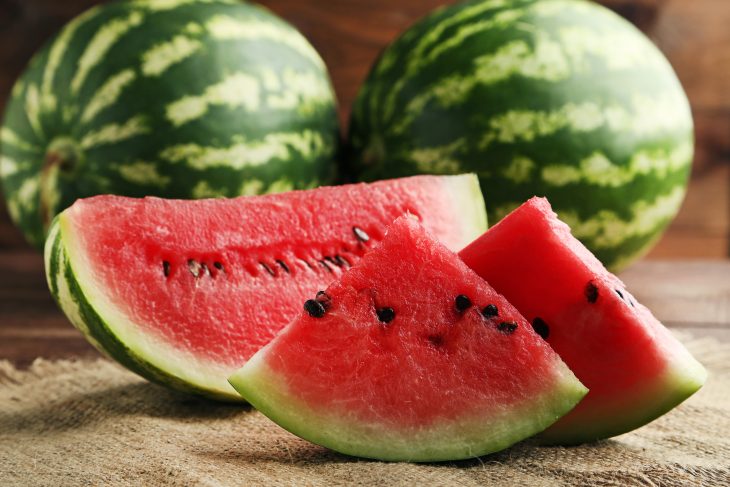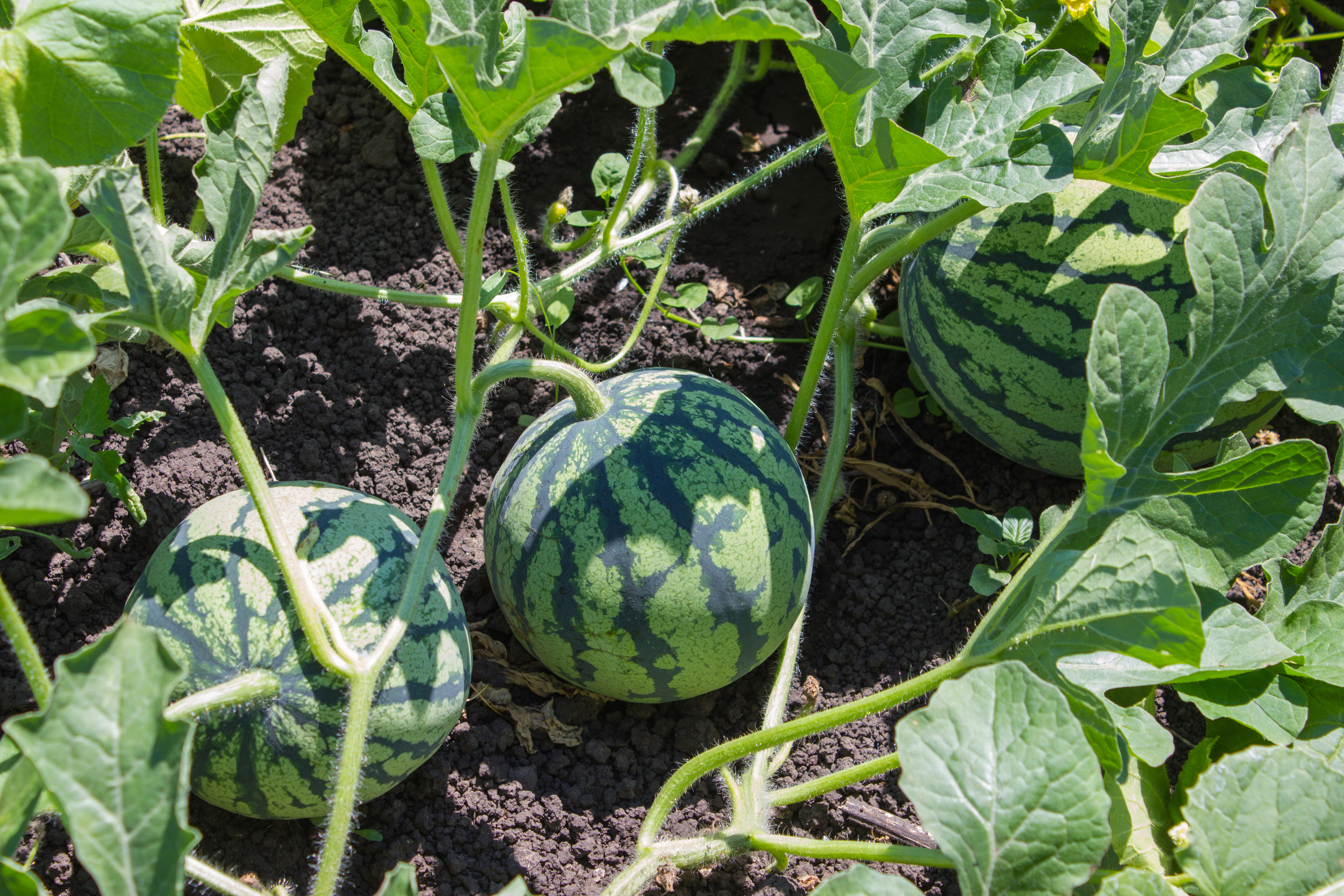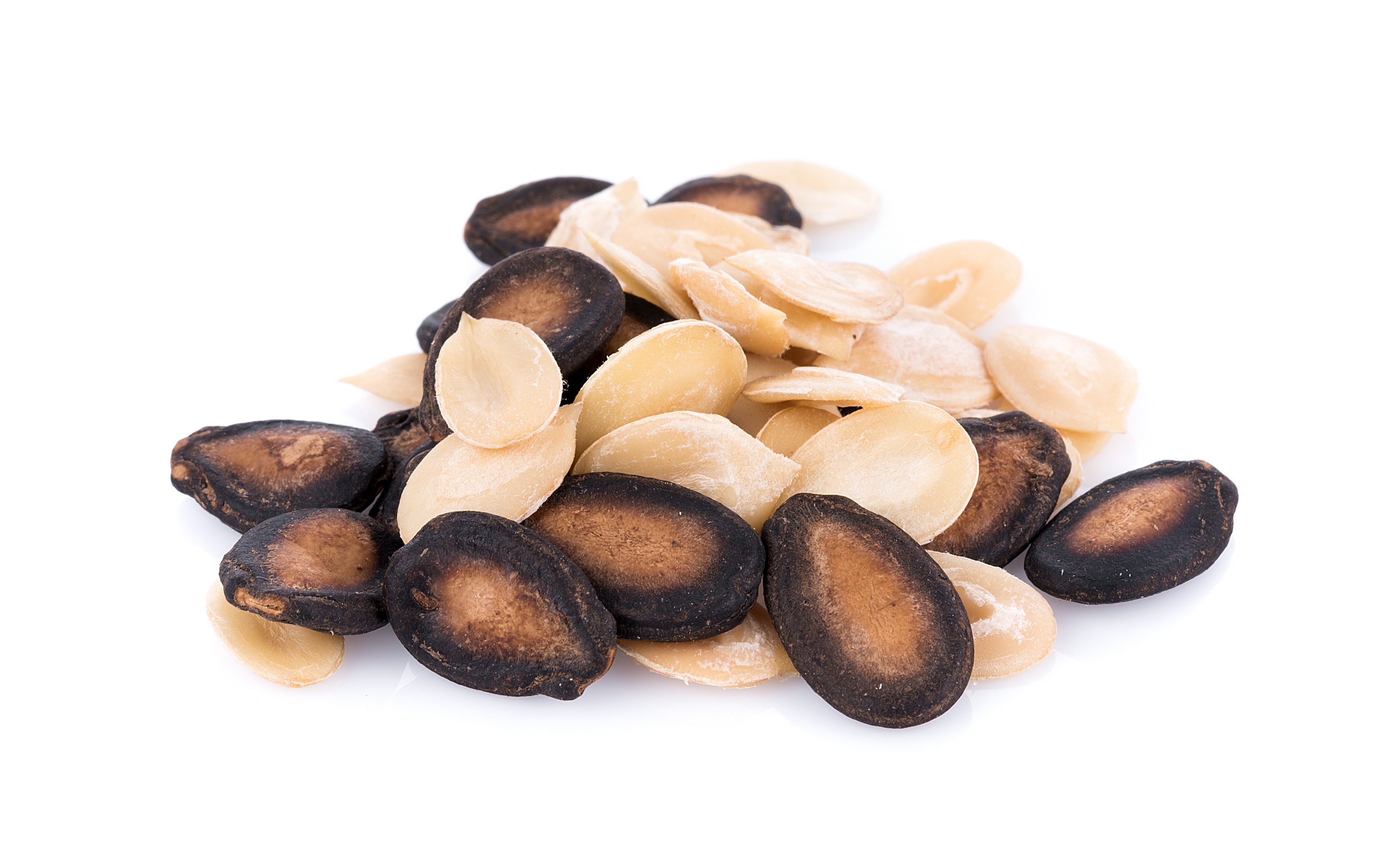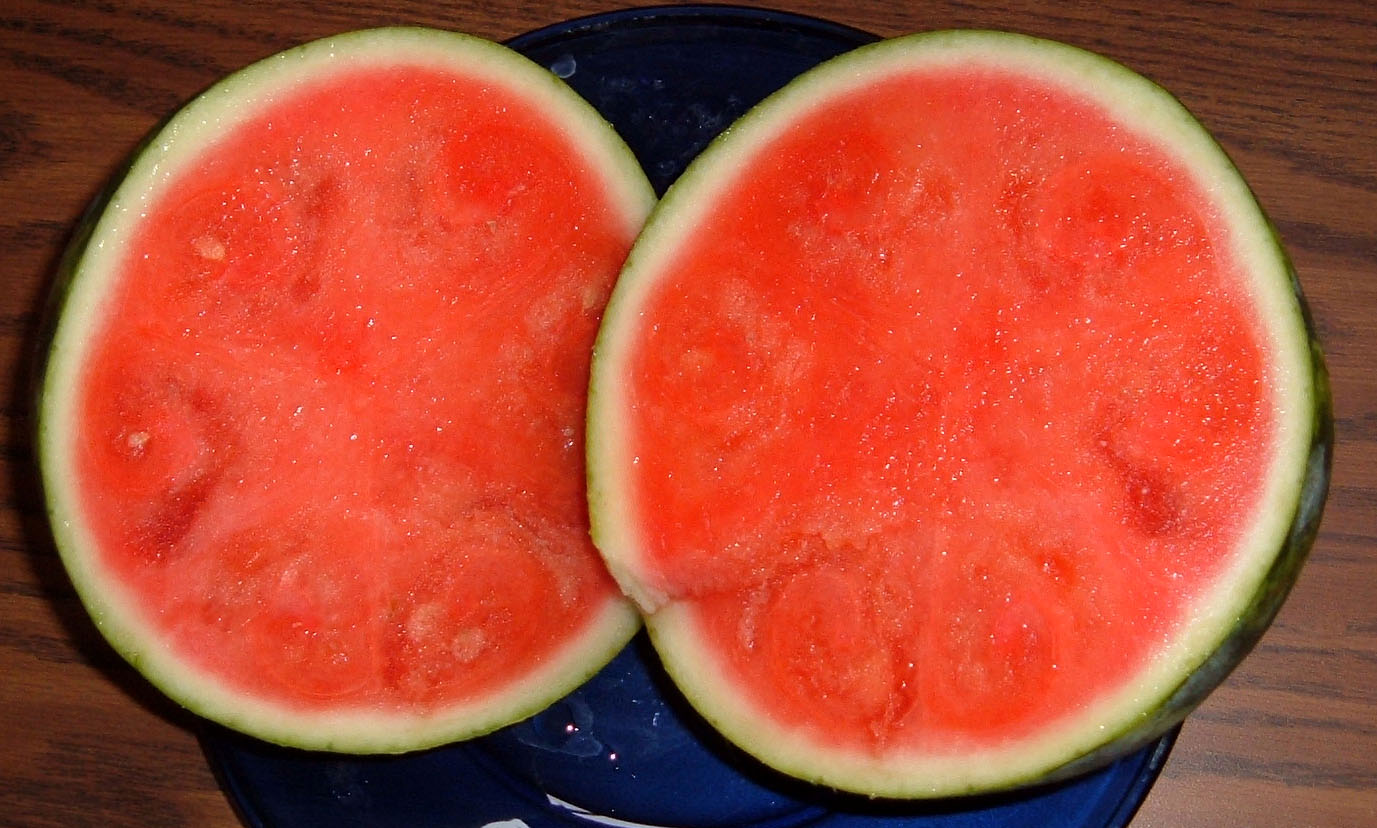
If you want to eat fruit on a hot summer day, watermelons may be one of the first things on your mind. Found across the world in many varieties, this refreshing fruit has been a staple for centuries. In fact, many countries have their own unique variants of the fruit. This proves that despite being one of the most common fruits people enjoy, watermelons are nowhere near as ordinary as they seem. Let this fruit surprise you even more with these watermelon facts.
- More than 1000 kinds of watermelon exist around the world.
- The world produces around 118 million tons of watermelons in a single year.
- China produces around 67% of all the world’s watermelons.
- Wild watermelons typically only have a diameter of around 20 cm.
- Commercial watermelons can have diameters greater than 60 cm.
- Scientists generally agree that the watermelon originally came from Africa.
- Scientists still argue whether the watermelon came from West or Northeast Africa.
- Archaeological evidence points to watermelons already farmed in the Nile valley around the second millennium BC.
- The relics in King Tut’s tomb include watermelon seeds.
- The Indians started growing watermelons around the 7th Century AD.
- The Chinese also started growing watermelons around the 10th Century.
- Watermelons first arrived in Europe in the 10th Century.
- Europeans brought watermelons with them to the Americas in the 16th Century.
- Watermelons became a garden crop in Europe by the 17th Century.
- The Japanese developed the seedless watermelon in 1939.
- Up to 85% of watermelons sold in the USA belong to seedless varieties.
- Water makes up 91% of a watermelon’s mass.
- Sugar makes up another 6% of a watermelon’s mass.
- A 100 gram serving of watermelon provides 30,000 calories.
- Watermelons only have trace amounts of fat.
A watermelon is both a fruit and a vegetable.
It may sound like one of the unlikely watermelon facts, but experts consider it as both a fruit and a vegetable. Since it has seeds inside, watermelons can be classified as a fruit. However, it also counts as a vegetable for belonging to the gourd family, along with pumpkins and squash.
Watermelons grow on vines.
Watermelon stems can grow up to 3 meters long, winding across the ground or climbing up standing structures nearby. The newer parts of the stem also have a tendency to sprout yellow or brown hairs. The leaves can grow up to 200 mm long, and up to 150 mm wide. Mature stems sprout flowers with petals with yellow tones on top and green underneath.

Some watermelons have a bitter flavor.
Specifically, wild watermelons that usually grow on the fringes of the world’s deserts have a bitter flavor. As a result, they’re not usually eaten by humans. Most of the time, people would only harvest them for cattle feed. In Australia, such specimens have an unflattering reputation as pest plants, treated no differently than common weeds.
Citrus melons make up a common variety of the watermelon.
Compared to other watermelons, the citrus melon has a rounder shape and a smaller size. Its flesh also has a distinct white color, while its leaves have a rougher texture compared to the leaves of other watermelons.
People don’t usually eat the citrus melon raw.
The citrus melon has much harder flesh than other watermelons, so people rarely eat it without preparation. Since the flesh stays sweet and edible, people often use it to make jams and food preservatives.
Like all watermelons, the citrus melon comes from Africa.
Scientists believe that it probably originated from the Kalahari Desert of South Africa. Along with its other relatives, the Ancient Egyptians have records of growing citrus melons on their farms.
Today, Africans grow citrus melons widely across the continent, but farmers around the world grow it as well. In the USA, people call them pine melons, usually growing wild in parts of Mexico.
Citrus melons have an important place along the edges of the Sahara Desert.
Despite the hot and dry climate, citrus melons thrive in the Sahara, storing away plenty of water inside their fruits. As a result, wild animals and travelers in the region have traditionally relied on citrus melons as a source of water for centuries.
Without them, nothing could survive the long journey across the water-starved region of the Sahara Desert. How’s that for mouthwatering watermelon facts?
Watermelons have an unfortunate legacy when it comes to race relations.
In a form of bitter irony, watermelons once symbolized an end to slavery before the American Civil War. The symbolism comes from how many free black people grew and sold watermelons as a source of income. After the war, white supremacist propaganda turned such symbolism into a racial stereotype. Specifically, they made it look as though African-Americans couldn’t grow anything but watermelons. This, in turn, gave the watermelon a reputation in some places as a lazy and even dirty crop.
Watermelons need to meet certain requirements in order to grow properly.
While they can grow in either temperate or tropical climates, watermelons thrive best in temperatures above 25°C. They also grow best in sandy, loamy soils with an acidity between 5.5 and 7.
Watermelons once struggled to grow in Europe.
Due to its low summer temperatures, watermelons rarely grew in Europe. This, in turn, kept the fruit from commercial viability and slowed its spread across the continent. It took centuries of adaptation before the fruit could grow naturally in the climate.
Several pests have a tendency to attack the watermelon.
Like many other crops, watermelons are vulnerable to pests such as aphids, fruit flies, and worms. High humidity could also make watermelons develop fungal and viral diseases. Over the centuries, growers have tried to combat this through selective breeding. Some farmers would also graft watermelons onto disease-resistant rootstocks for an increased protection against pests and diseases.

Bees can help watermelons grow better.
The US Department of Agriculture (USDA) recommends farmers to keep at least one beehive for every 4 km². These bees would pollinate the watermelons, preventing the development of what farmers call hollow hearts. Watermelons with this condition have a symmetrical hole in place of the seeds at the center of their fruits. That said, hollow heart watermelons remain perfectly safe to eat.
Some Japanese farmers grow cube-shaped watermelons.
While you’d know watermelons as round fruits, they can also grow in many shapes and forms. In Japan, farmers grow different varieties of pyramidal, heart, or even face-shaped watermelons. To achieve this effect, growers would encase early sprouts into glass or metal boxes. As they grow, they assume the shape of the surrounding container.
Originally, the Japanese farmers came up with this method so they could stack and move the watermelons easier. However, the cost of growing watermelons in such a way turned their crop into a luxury good. Generally, cube-shaped watermelons can cost up to around $80 per kilo, compared to just around 60 cents for a kilo of regular watermelons. How’s that for neat watermelon facts?
The Carolina Cross variety of watermelons once produced the world’s biggest watermelon.
In 2013, Chris Kent of Tennessee grew a 159 kg watermelon for the local Operation Pumpkin Festival, successfully winning a prize for it. Later on, the Guinness Book of World Records certified and added recognition to Chris Kent for this achievement.
Orangeglo watermelons have orange flesh inside.
The fruits also have a distinctly oval shape, typically weighing around 14 kg. This watermelon variety takes 3 months to ripen for harvest and has a very sweet flavor.
Moon and Stars watermelons have a unique coloring.
First grown in 1926, this variety has a purple or black shell dotted with many small circles in yellow. They also have 1 or 2 large yellow circles in addition to the smaller ones, giving it the name moon and stars. Typically weighing around 23 kg, they have red flesh with brown seeds and take about 3 months to ripen for harvest. Now there’s one for watermelon facts that you’d want to try for yourself.
The Golden Midget is one of the smaller variants of the watermelon.
As the name suggests, the golden midget watermelon grows small enough to fit in your hand. On average, it takes just over 2 months to ripen for harvest. Aside from its size, the name also references the golden color of the fruit’s shell once it finishes ripening.
The Densuke variant of watermelons includes some of the most expensive fruits on record.
A single fruit usually costs around $250, with the most expensive specimen ever selling at auction for $6300. The cost comes from the fact that the fruit only grows on the Japanese island of Hokkaido, with harvests averaging only around 10,000 fruits per year. The fruit also has a distinctive appearance, featuring a solid black shell with no stripes.
Several varieties of watermelon are also available only to private or specialist gardens.
Some exclusive watermelon varieties include the Black Diamond, Georgia Rattlesnake, and Tom Watson among others. As these varieties lack commercial viability, their seeds typically only sell to private individuals and hobbyists who grow them for their own private use.
Bradford watermelons have been go.
Named after grower Nathaniel Bradford, these watermelons were first introduced to South Carolina in 1840. The Bradford had a very sweet flavor, but its thin shell made it very difficult to transport even in small quantities. While this ruined its commercial value, the Bradford avoided extinction with Nathaniel Bradford’s family continuing to grow it for their own use.
You can eat watermelon in several ways.
The most common way, of course, is to simply slice the watermelon and then eat the slices. Alternatively, you can dice the watermelon, and mix it with other fruits as a mixed fruit salad, before eating them together. You can also just juice the watermelon’s flesh, and drink it by itself, or after mixing it with other fruit juices. People also sometimes use watermelon as an ingredient to make watermelon wine.
It’s traditional to eat watermelon with salt.
The salt helps bring out the sweet flavor of the fruit’s flesh. In Egypt and Israel, people take this a step further, eating watermelon not with salt, but with salted feta cheese. In addition to bringing out the watermelon’s flavor, the cheese adds its own unique flavor as well. How’s that for delicious watermelon facts?
People also eat watermelon seeds.
The usual cooking methods include drying and roasting, but the seeds can also become the raw material for making flour. The Chinese traditionally eat the seeds on Chinese New Year, while the Vietnamese also traditionally eat them on the Vietnamese New Year.

Watermelon seeds will not grow inside you if you swallow them.
A common superstition states that if you eat watermelon seeds, the plant will start growing inside you and eventually kill you. However, it’s completely fictional. Eating the seeds will only cause indigestion at worst if you eat the seeds raw.
People can also produce oil from watermelon seeds.
To extract watermelon seed oil, you’d have to shell the seeds and leave them to dry in the sun. Afterward, you press the seeds to get the oil out, which has value as an essential oil. Rubbed against the skin, it alleviates excessive dryness, with some sources claiming it can reduce the risk of skin cancer. Watermelon seed oil also features in cuisine as a dressing for salads and desserts among other dishes.
Watermelon seed oil tends to have a lot of fat.
It’s only natural that watermelon seed oil has a lot of fat. In fact, it’s completely made of unsaturated fat, so it’s less unhealthy than you might think. Containing 15% of omega-3 fatty acids, watermelon seed oil can actually be good for you compared to other kinds.
Even watermelon shells can have commercial value.
Although people don’t usually eat them, watermelon shells are edible. Since it makes the shells softer, people usually pickle the shells. In cooking, watermelon shells can also be used as ingredients in various stir-fries and stews around the world.
Explorers once recycled watermelon shells.
In the 19th Century, explorers carefully removed all of a watermelon’s flesh through only a small hole in one side of the fruit. Then, they would clean the empty shell and dry it, leaving it hard and waterproof. This allowed them to use the shells as water containers. How’s that for handy watermelon facts?
Watermelon roots have medicinal uses.
Specifically, people would use watermelon root as a laxative to induce bowel movements in small amounts. In larger amounts, they instead have a use as an emetic to induce vomiting for those who eat it. Traditional medicine also sometimes has the roots crushed to extract their juice, can stop bleeding for women who go through abortions.
Watermelons have many nutrients.
In terms of just vitamins alone, watermelons are rich in Vitamin A, which helps keep not just your skin but even your hair healthy and moist. Watermelons also have Vitamin C, which strengthens the immune system and makes wounds heal faster and cleaner.
Eating watermelon may also help reduce the risk of cancer.
Watermelons have lycopene, which helps prevent prostate cancer among men. Its Vitamin C content may also help prevent cancer in general. In addition, they also reduce the risk of heart attacks and makes for stronger bones.

Watermelons may also help people with high blood pressure.
The watermelon’s potassium content reduces blood pressure, which is very helpful for people who already suffer from hypertension. The potassium also helps the kidneys process waste from the blood and reduces uric acid levels in the body.
Eating watermelons definitely helps with digestion.
Rich in fiber, watermelons also help stimulate the digestive system. The benefits become even better for people who suffer from constipation, as watermelon can help them get over it without needing to resort to medicine.
You should still eat watermelons in moderation.
Excess vitamins just pass out of the body with urine, but too much lycopene and potassium can get really bad. Too much lycopene, for starters, can cause bloating, dizziness, indigestion, and nausea. Meanwhile, too much potassium could damage the heart, resulting in an irregular heartbeat and increasing the risk of a heart attack.
It can also cause a person to suffer from a reduced ability to control their own muscles. Finally, watermelon has its own natural sugars, so eating or drinking too much of the fruit might cause a person to actually gain weight instead of losing it.
Don’t eat watermelons if you currently suffer from diarrhea.
Like we mentioned earlier, eating watermelons makes it easier to move your bowels. But if you suffer from diarrhea, you don’t need any help to move your bowels at all. If anything, you need help to stop moving your bowels so much, which can cause dehydration among other complications. So avoid the watermelon until your diarrhea or the condition or disease causing it passes.
Some people have allergies to watermelons.
Most symptoms include an itchy tongue and throat, outbreaks of hives, stomach pain and cramps, even nausea and vomiting upon consumption. In extreme cases, a watermelon allergy can result in a potentially-fatal anaphylactic shock. Now there’s one for watermelon facts to keep in mind.
Some people should consult their doctors before eating watermelons.
While watermelons have many health benefits, they can also pose risks for people with certain conditions. In particular, people suffering from heart, kidney, and nervous complications should be wary of eating watermelons. The potassium in the fruit could potentially impair nerve functions, and even cause internal damage to the kidneys.
Watermelons are actually popular gifts in some countries.
In China and Japan, watermelons have become traditional gifts to offer from guests to a hostess when they receive an invitation to her home.
Seedless watermelons aren’t actually GMOs.
Seedless watermelons come from selective breeding, made by planting pollen from a female watermelon on the flower of a male watermelon. This results in seedless watermelons, but they still have the white outer casings that usually coat the seeds. How’s that for surprising Watermelon Facts?

Oklahoma has the watermelon as their state’s official vegetable.
While strawberries beat the watermelon for the title as Oklahoma’s state fruit, it claimed the honor of being its state vegetable. In 2007 when a state committee voted 44-2, which ruled that watermelon was a vegetable and not a fruit.
Was this page helpful?
Our commitment to delivering trustworthy and engaging content is at the heart of what we do. Each fact on our site is contributed by real users like you, bringing a wealth of diverse insights and information. To ensure the highest standards of accuracy and reliability, our dedicated editors meticulously review each submission. This process guarantees that the facts we share are not only fascinating but also credible. Trust in our commitment to quality and authenticity as you explore and learn with us.


